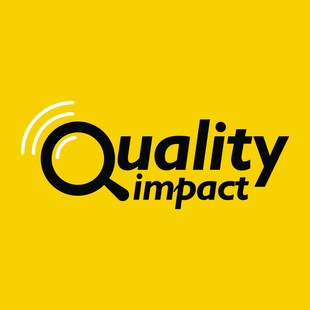
Upholding the ethics of auditing
Progress indicator

What ethical challenges could an auditor face when scrutinising an organisation’s quality management system? George Nyambuya PCQI takes a closer look.
Any organisation needs three components to make money: people, place and product (services).
These ‘three Ps’ form the basis of what I call foundational ISO management systems. Providing the customers with a product means the organisation has invested in intellectual property, research and products to get to where they are. This is the key driver of any organisation’s success. You are irrelevant if you don’t have a product or service to offer to the marketplace. Product integrity and performance are vital components. Our ISO 9001 quality management systems assure consistent product manufacturing, but not necessarily product integrity.
Auditing an organisation’s quality management system does not limit any auditor from further scrutinising product integrity and performance information. As part of the manufacturing process, an auditor can interrogate any information related to a product’s formulation, development, testing and inspection, as part of the audit process.
It is essential to ensure that, during the entire process, an auditor maintains impartiality in their work. Any information presented wrongly as part of the process must be treated as a nonconformity and reported to management.
One of the critical challenges for auditors is to pick up, document and report any such nonconformities ethically – regardless of fear of job loss, not being part of the ‘team’ at the organisation, and many other reasons.
When raised as part of an internal audit process, nonconformities of this nature could bring the organisation’s reputation into disrepute, potentially leading to legal and financial losses. However, a good auditor should not be afraid of documenting or reporting any such nonconformities.
"Auditing an organisation’s quality management system does not limit any auditor from further scrutinising product integrity and performance information."
ISO 19011: 2018 Guidelines for auditing management systems clearly illustrates the requirement for auditors to be fair and honest (Clause 7.2.2, ‘Personal behaviour’). This clause outlines the importance of auditors demonstrating personal attributes such as fairness, truthfulness, sincerity, honesty and discreetness. These qualities are essential for maintaining the integrity of the auditing profession and ensuring the audit process is objective and impartial.
As an auditor, you should be challenged by the need to uphold your auditing ethics, rather than the organisation’s position in exposing such nonconformities. Getting to that point of ethical auditing is a huge challenge, but this is what ISO 19011 and business morality demand of us.
One cannot ignore the ethical challenge posed by raising such nonconformities, as this can have a personal effect on your social and financial status. Job and financial security loss can result if one faces top management head-on with such an issue. Management might profess ignorance of the problem and even consider dealing with you diplomatically, leading to the loss of your job.
In the most favourable situation, management might welcome the reporting of such a nonconformity and implement an action plan to address this. These are the challenges with which you grapple at the point of wanting to document and report such a nonconformity.
There are numerous advantages of upholding your ethical auditing standards, among which is gaining professional recognition. This is not an immediate gain when faced with such ethical auditing challenges. Still, continuing to uphold one's professionalism in auditing could be an asset in the future.
Gaining industry recognition can lead to various other things, including professionalism and respect. The industry will know what you stand for and, as such, treat and respect that value: honesty and integrity in auditing.
I dedicate the short article to my mentor, father figure, and business partner, Alan Stothard, former Managing Director at IQS International in South Africa, who passed on the 13 November 2024. All of the above fully describes him – a trustworthy, ethical, honest, fair and dedicated quality guru in many ways.
Search the Quality World content archive
If you are interested in the ethical dilemmas that can face quality professionals, why not search for the 'ethical dilemma' feature in past issues of Quality World magazine?
The latest from the CQI Podcast

Listen to the Quality Impact podcast, where experts share insights on the evolving role of quality across industries.
Quality World

Get the latest news, interviews and features on quality in our industry leading magazine.
Become an event partner for Quality Live 2025
Raise your organisation's profile with our audience of international quality and auditing professionals


